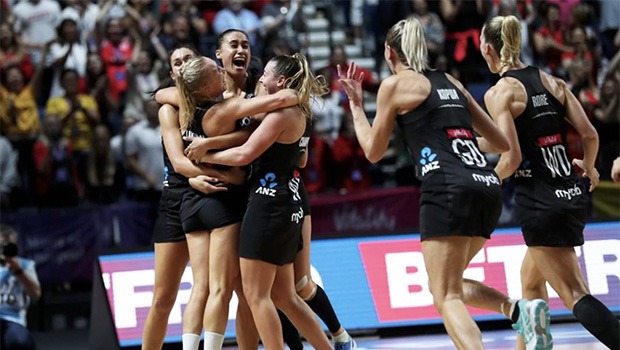
The World Cup is over, our body clocks are almost ticking properly again and our attention is turning to the race to Suncorp Super Netball finals. But before we move on, former Australian men’s coach and captain Heath Brown takes a look at nine key learnings we can take away from Liverpool.
As passenger seat coaches and fans, it can sometimes feel like a Diamonds loss is felt by the whole country. So keen is our love for our sport that we ride the highs and lows as if we were out on court. We scream at our TVs venomously when the opposition gets surly or umpires get whistle-happy, while we applaud our team and use their first names like we’ve known them all our lives.
We have the fortune of being able to say, “I could’ve, would’ve, should’ve made that move”, as we challenge coaches in retrospect, while they’ve had to make those same big decisions in real-time. We hibernate when the result doesn’t go our way, and have our less netball crazy loved ones asking when we will stop grieving.
When I finally came up for air after the gold medal, I discovered far more upside for the Australian Diamonds and also our sport globally. Here are my top takeaways from a huge couple of weeks.
It’s Anyone’s Game
Whilst my nerves and patriotism would love the Diamonds to be back in their era of dominance, my love for our sport and desire for it to become the biggest female sport in the world is enjoying the fact that we are now one giant amongst many.
How good is it for all of us fans that we can turn up to a world tournament and throw a blanket over the top five for the first time in the history of our sport? It’s a massive changing of the guard and it means we’ll be treated to edge-of-your-seat netball more often. The top five could beat any other country alongside them on any given day. There’s still some way to go for the chasing pack if we want to avoid those early-round blowouts and call it a truly global game, but the signs are promising.
For me this makes squad preparation and form management during competition the key to winning. I’m still old-fashioned and believe you should run a preferred seven, but international coaches are bucking this trend and may be paving a new route to the gold medal. It was certainly the hottest topic for Diamonds fans as we heard Lisa Alexander remain steadfast in saying she didn’t have a starting seven, and that her line-up was a game by game choice. Were the finals fadeouts, where we went missing for near full quarters, a product of under-played sevens? We’ll never know if those two silver medals could’ve been gold.
All Coached Out
I have so much respect for outgoing coaches Norma Plummer and Tracey Neville. They’ve done the hard yards to get their countries to world-class, and now are handing their successors golden reins to take over. Like players, knowing when it’s your time is the toughest decision you can make, but not nearly as rough as being shown the door when you overstay your peak, which is what is likely to occur for Jamaica’s coaching group after their nose-dive.
Australia seems likely to opt for change after two successive losses in big tournaments. Lisa Alexander has done amazing work to keep our team ranked world number one in an era with unprecedented competition. But the time is nearing after eight or so years, and change is a natural next step. In her last year of a contract, let’s hope she goes out on her own terms as one of Australia’s best and we have new blood (Briony Akle cough cough) to set us off on a new horizon in the not too distant future. I’m also excited by where Lisa shows up next. She’s hinted at wanting to be the first female AFL coach but I hope she chooses to stay in our sport. Imagine what she could do with an SSN franchise, with week-in-week-out exposure.
Whistle-happy
We are blessed in Australia to have umpires who are exposed weekly to a competition that has the fittest, fastest and strongest athletes in the world. Their officiating has evolved to match our sport, acknowledging that the modern day athlete should be able to contest using their power. This evolution has not yet reached the international stage, and parts of the World Cup felt like we were watching games from the 1990s, with the power taken away from the athletes.
At times matches were umpired like they were protecting under 12s, rather than the muscled-up world class athletes of today. We saw unjustified, power-tripping warnings dished out like Sunday dinners, unlike the modern whistle, which uses rapport and calm with an underlying understanding of the pressure that players are under. The players are the product we want to see in the limelight, not a grandstanding umpire. We saw way too much whistle and not enough of the game being left up to the best athletes.
When you account for time in possession, the Aussies were penalised every 20 seconds early in the gold medal match at a 2:1 ratio of their opponents. So if you’re wondering why Courtney Bruce went wandering and the Aussies crumbled in defence with too much space allowed, imagine the psychology of being taught your whole career how to defeat a player with strength, discipline and tight marking, but then being warned for it by umpires who don’t understand the fundamentals of one-on-one defence. My heart sank for these athletes as the world watched them blow a fuse because their biggest weapons were blunted.
Then there’s the paradox of what a tall shooter has to endure versus a small one. Brush a small player’s body low to the ground and you will be out of play almost every time. Be the underdog small defender against height and it resembles a wrestling match on the ground and a body-slamming contest in the air. If you want to see a case in point, re-watch the Sarah Klau warning in the final and then watch the next half dozen contests at the other end. It was puzzling at best.
Without umpires we don’t have a game, but at this level the umpires simply need better exposure to top class netball, because it’s going to be hard to sit through another whistle-happy World Cup where world class athletes are crucified.
Kiwi Masterclass and Mana
On top of the Silver Ferns’ sublime netball, so much can be learned about a winning culture from Kiwi players, fans and officials. Noeline Taurua now has a cult following unlike any other, and she’s taught us how to take a team with its collective tail between its legs, back to being a world-beater in under a year.
Her unconventional game plans, characterised by excessive possession, space crowding and bold shootouts, can only be achieved with confidence and a steely resolve to stick to the game plan even when mistakes creep in. Bringing back on-court leaders added experience that was worth 10 goals before they even stepped on court.
And then there’s this thing called ‘mana’, which is what makes us all want to be a Kiwi. Defined as a supernatural belief in power and respect, the term hails from Maori and nearby islander culture. This is what Noeline brings, and it’s what her players then bring to life on court, knowing the power the black dress brings to them. Australian sport in general needs to find its ‘mana’ as this is what fuels a team’s purpose and passion – something we can’t teach an athlete without a philosophy. The cracks we saw appear and the rumblings in and around the Diamonds squad would appear to require some cultural work to galvanise them.
“World’s Best” Bibs
For the first time since I can remember, Australia barely holds down a “best player in the world” title for their chosen position. Geva Mentor owns the GK bib, Karla Pretorius the GD, WD is still to be claimed, C is Laura Langman, WA I’d give to Kelsey Browne, GA is Helen Housby and GS is Jhaniele Fowler-Reid or Maria Folau. The irony is that Australia’s netball league and programs helped prepare these offshore athletes, at the expense of our own players. They spend more time in our programs and at the top of the pool of our player funding than they do in their own countries’ programs, where they spend only a few weeks each year.
The challenge is out there for us coaches at all levels to help our elite peers by searching for and building future world-leaders. Lisa Alexander and our other elite coaches can make world beaters, but those future stars need a pathway if we’re going to produce the next C-Bass, Sharelle, Lizzy or Geitzy.
Long-Bombers Are Back
A Vicki Wilson/Cath Cox-esque long bomb has been out of the game for many years. For the most part we see Super Netball scoreboards being ticked over by shots from under the post, but this time around we saw a tournament where range shooting had a massive impact. The Kiwis schooled us all in the art of shooting, with Ekenasio taking some of Folau’s bravado and bombing them in from everywhere, under all sorts of pressure, to bust open games.
These kinds of shots may be higher risk, but are worth more than a single goal when converted, as they pump up a crowd, lift a team and break the hearts of defenders. England also has long bombers on tap or on the rise, and who didn’t love Wharton from Barbados making it rain with her heels on the edge of the goal circle! I’d love to see our talls coming through with the ability to bomb mid to long, and have players like Kiera Austin come through who have Folau-like range.
Experienced Spine
Twenty years ago the New Zealand media called Australia the “geriatrics” as we fronted up with a 30-something-year-old team at the World Dup. This label has now been watered down to “fossils” for the Kiwi fraternity, but what we learned at this tournament is that an experienced spine is a winning formula for gold. A spine means one experienced player in each third as an older head to lead that unit through the battles. Australia is currently without that spine, with youth and inexperience featuring heavily in our mid and back half. Conversely, New Zealand has their Langman-Kopua-Folau spine and a 30-something-year-old average age out there.
South Africa had more than a spine, with most of their starting group part of the 30-plus club. England boasted their own spine of veterans right across the court. With more years of battle learnings under their belt and hundreds more Test caps, it suggests the key to success is that experienced core. Could we therefore see the Diamonds’ brains trust knocking on the post-maternity ward door of Laura Geitz, or asking Sharni Layton to swap her Magpies guernsey for a gold dress? And will Madi Robinson come back from her knee injury, ready for a recall? Should Renee Ingles or Gabi Simpson have been out there? Most retired in their late 20s and early 30s and could have one, maybe two cycles left in them, given the type of athlete they are.
International Outlook
England and New Zealand’s squads are ageing out, and they now face the battle Lisa Alexander endured over the last four years. South Africa is in similar shoes as they attempt to maintain a top ranking while resetting and building for the next two cycles. Undoubtedly both went hard for the this World Cup at the expense of blooding youth, and this may expose them. It can be managed better by phasing retirements out across the next two cycles and phasing in their replacements one by one.
Australia’s biggest challenge was its batch of cleanouts, meaning a stack of new players were being on-boarded at once. You have to give the Diamonds credit for how they performed given such dramatic change, and rest assured that the selectors had one eye on Liverpool gold and the other on long-term sustainable success. They almost pulled off the seemingly impossible by achieving both. This group of Diamonds in their twenties are now one World Cup the wiser – something that the young Ferns or Proteas or Roses sitting at home won’t have when they front up to the next World Cup. That said, the Kiwis are probably next best positioned to ensure there is continuity, given their youngsters are reigning World Youth Cup champions for the last two cycles.
Aussie Outlook
If we tap into a couple of 30-somethings to help with the spine issue, pairing them with this young bunch that now has the experience of a World Cup and a quest for vengeance pumping through their veins – look out Cape Town 2023. That young group could dominate the next two or three World Cups. Add to that the next batch of big stars in Austin, Jenner, Eddy and Parmenter, who are already beating international players in Super Netball, and the signs are ominous. The big question for Australia is who will follow the two Caitlins as our next target shooters? Will it be Sophie Garbin, or will another bolter come through? Or will we pull a New Zealand and naturalise an international youngster that we have built, in Mwai Kumwenda or Shimona Nelson?
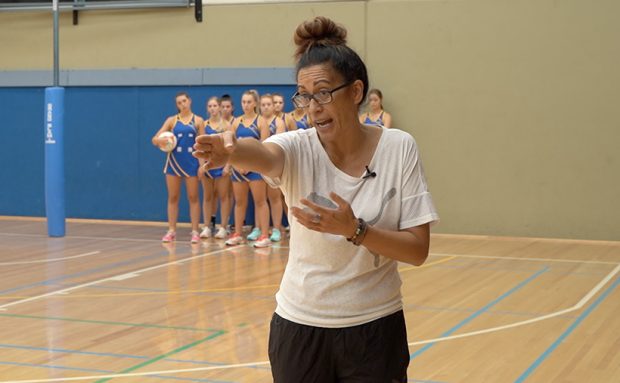

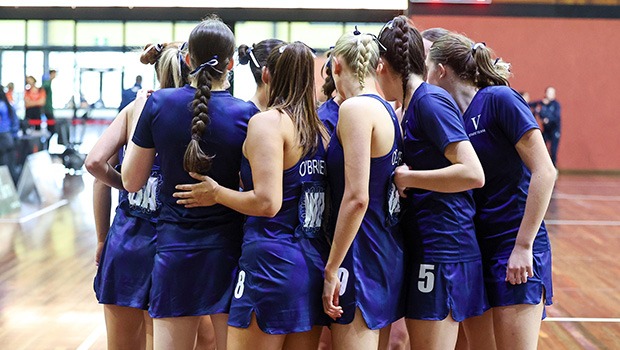
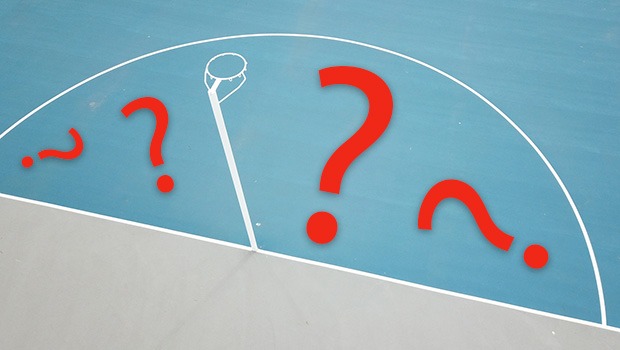
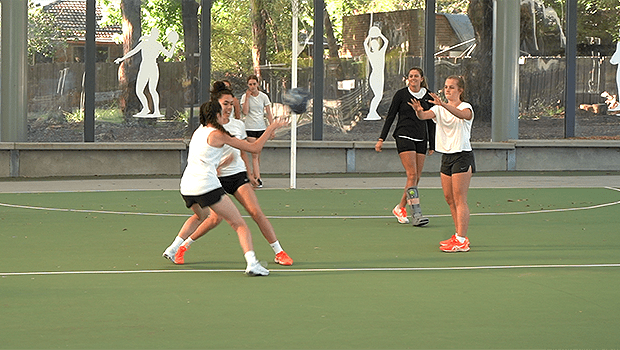
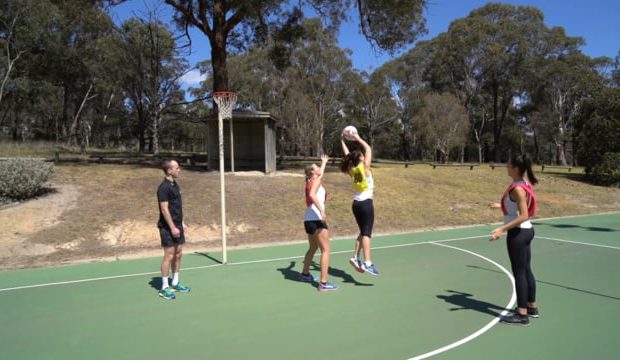
As a former international umpire I disagree totally about the comments on umpiring the final game. The game was extremely well controlled by both umpires with a great balance between advantage and penalising. No player had the right to charge thro a player who had her space and this is typical of the game Australia play.
I believe the umpiring at WNC is the best I have seen. I believe it was those umpire s who have umpired at Suncorp who sent a player to the sideline in the very early stages of the WNC. The officiating for semis and finals was very good and I am disappointed that not all will continue. It is a fine line between allowing a game to flow and allowing too much physicality there is such a rule as contact and even Suncorp is questioning how far do we go.